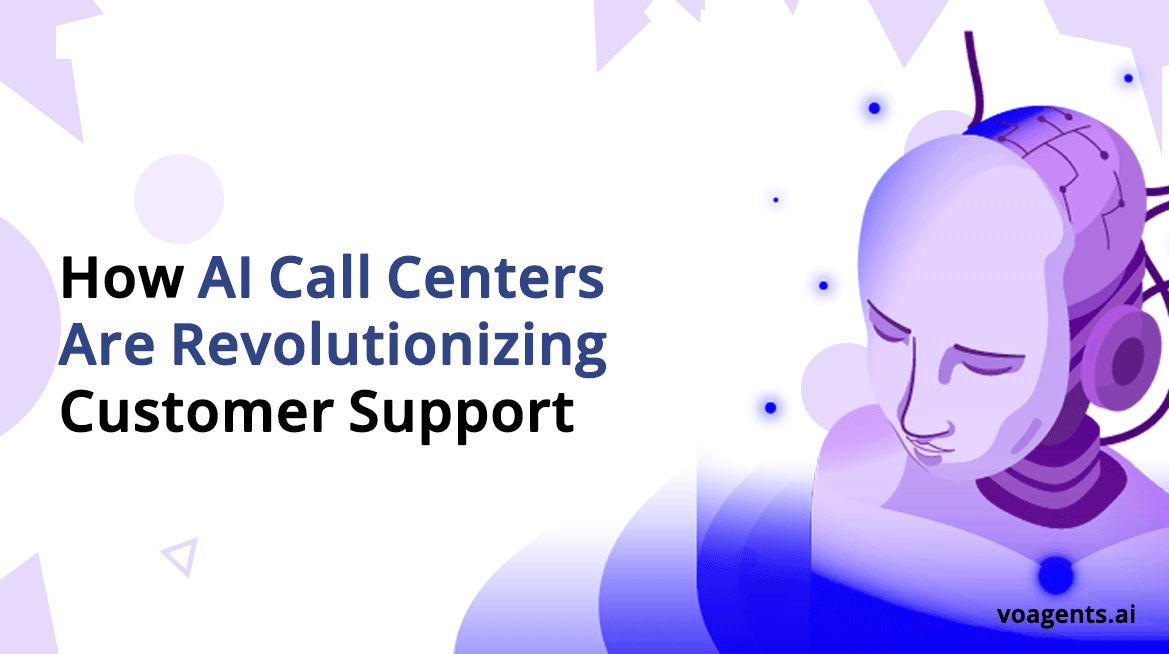By streamlining routine tasks and enhancing complex interactions, AI is revolutionizing customer support—turning a traditionally slow and frustrating process into a seamless, efficient experience.
Call centers have always been at the forefront of technological advancement.
Key Challenges of Traditional Call Centers and Their Impact on Customer Experience
Delays in Response Times
Today’s customers expect fast resolutions, yet many traditional call centers struggle due to staffing limitations and rigid processes. As call volumes surge, agents become overwhelmed, leading to extended wait times and slower responses. By the time a representative is available, customers may have already lost interest or their issue may have escalated.
Workload Overload for Human Agents
Call center representatives handle more than just answering calls. Their workload includes managing repetitive customer inquiries, such as order status updates, identity verification, and general product questions. These routine tasks take time away from more complex customer concerns, like billing disputes, service outages, or policy-related inquiries.
Handling High-Traffic Periods
Peak seasons, including holidays and major promotional events, should be profitable for businesses. However, without proper automation, traditional call centers struggle to manage high call volumes effectively, turning these opportunities into logistical challenges instead.
Extended wait times leave customers frustrated, while overwhelmed agents experience burnout and higher turnover rates. According to industry data, 60% of customer support teams report an increase in call traffic during peak seasons, yet only 29% are able to scale operations efficiently.
Limited Support Outside Business Hours
Customers expect access to support at any time, yet human agents are limited to specific working hours. Many customers in different time zones or with urgent after-hours inquiries are left waiting for a response, resulting in nearly 35% of total support requests going unresolved until the next business day.
How Can These Challenges Be Addressed?
Solving these inefficiencies requires a combination of streamlined processes and advanced technology. Optimizing workforce management and implementing intelligent call routing can reduce response delays. AI-driven contact centers enhance efficiency by analyzing conversations in real-time, reducing wait times, and improving customer interactions with human-like responses.
Automation plays a crucial role in easing the burden on agents by handling repetitive queries such as order tracking, shipping updates, and simple troubleshooting. This allows human representatives to focus on complex problem-solving, such as technical support or financial disputes.
To handle seasonal spikes, businesses may hire temporary staff or integrate cloud-based solutions. However, these traditional fixes still rely on expensive and time-consuming human intervention.
How AI is Revolutionizing Call Center Operations
AI-powered call centers are reshaping customer service by automating routine interactions and analyzing customer needs in real-time, allowing for a more tailored and efficient support experience.
Choosing the right AI-driven solution is key. https://voagents.ai/ offers a smarter, more engaging approach to customer communication, making AI-assisted call centers more efficient and human-like.
Benefits and Use Cases of AI in Call Center Operations
Artificial Intelligence is revolutionizing customer support by optimizing workflows, enhancing efficiency, and ensuring a seamless experience for both customers and agents. Here’s how AI is transforming call center operations:
Key Benefits of AI in Call Centers
Faster Response Times
AI-powered voice assistants and chatbots instantly handle customer queries, eliminating long wait times and reducing call abandonment rates.
24/7 Availability
Unlike human agents, AI solutions operate round the clock, ensuring customers receive assistance anytime, anywhere, even outside business hours.
Reduced Operational Costs
By automating repetitive tasks, businesses can cut labor costs while improving efficiency, reducing the need for excessive hiring and training.
Scalability for High Call Volumes
AI handles peak call traffic during holidays or promotional events, preventing call center overload and ensuring smooth customer interactions.
Improved Customer Experience
AI-driven responses ensure accurate, consistent, and personalized support, leading to higher satisfaction and customer retention.
Optimized Agent Productivity
By taking care of routine queries, AI allows human agents to focus on complex cases, improving problem resolution and reducing burnout.
Data-Driven Insights
AI collects and analyzes customer interactions in real-time, providing valuable insights that help businesses improve service quality and decision-making.
Use Cases of AI in Call Centers
Automated Call Handling & Routing
AI-powered systems can intelligently route calls to the right department or agent based on customer needs, reducing unnecessary transfers and wait times.
Self-Service Support
AI chatbots and virtual assistants empower customers to resolve common issues, such as checking order status or resetting passwords, without needing a human agent.
Predictive Customer Service
AI anticipates customer needs by analyzing past interactions, offering proactive support before issues escalate.
Real-Time Sentiment Analysis
AI monitors customer tone and language during calls, providing agents with insights to adjust their approach for better outcomes.
Fraud Detection & Security
AI enhances security by detecting suspicious activities and verifying customer identities through voice recognition and behavioral analysis.
Multilingual Support
AI-driven call centers can provide real-time language translation, breaking down communication barriers and expanding global reach.
Post-Call Analysis & Reporting
AI transcribes, analyzes, and categorizes customer calls, helping businesses improve service strategies and agent training.
Why AI is the Future of Call Centers
The integration of AI in call centers is no longer optional—it’s a necessity for businesses aiming to provide seamless, efficient, and cost-effective customer service. AI-powered solutions not only enhance customer satisfaction but also empower agents, streamline operations, and drive business growth.


